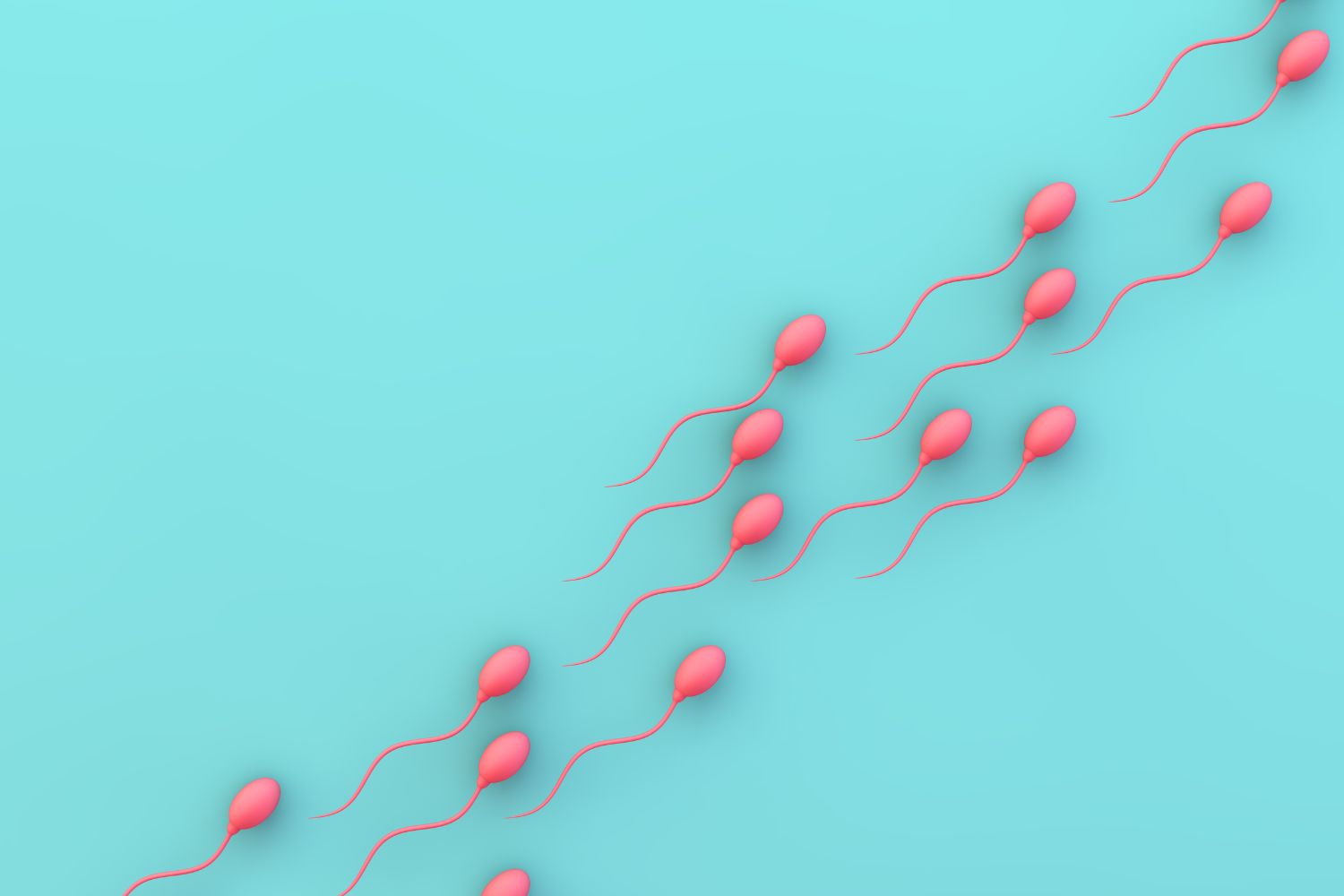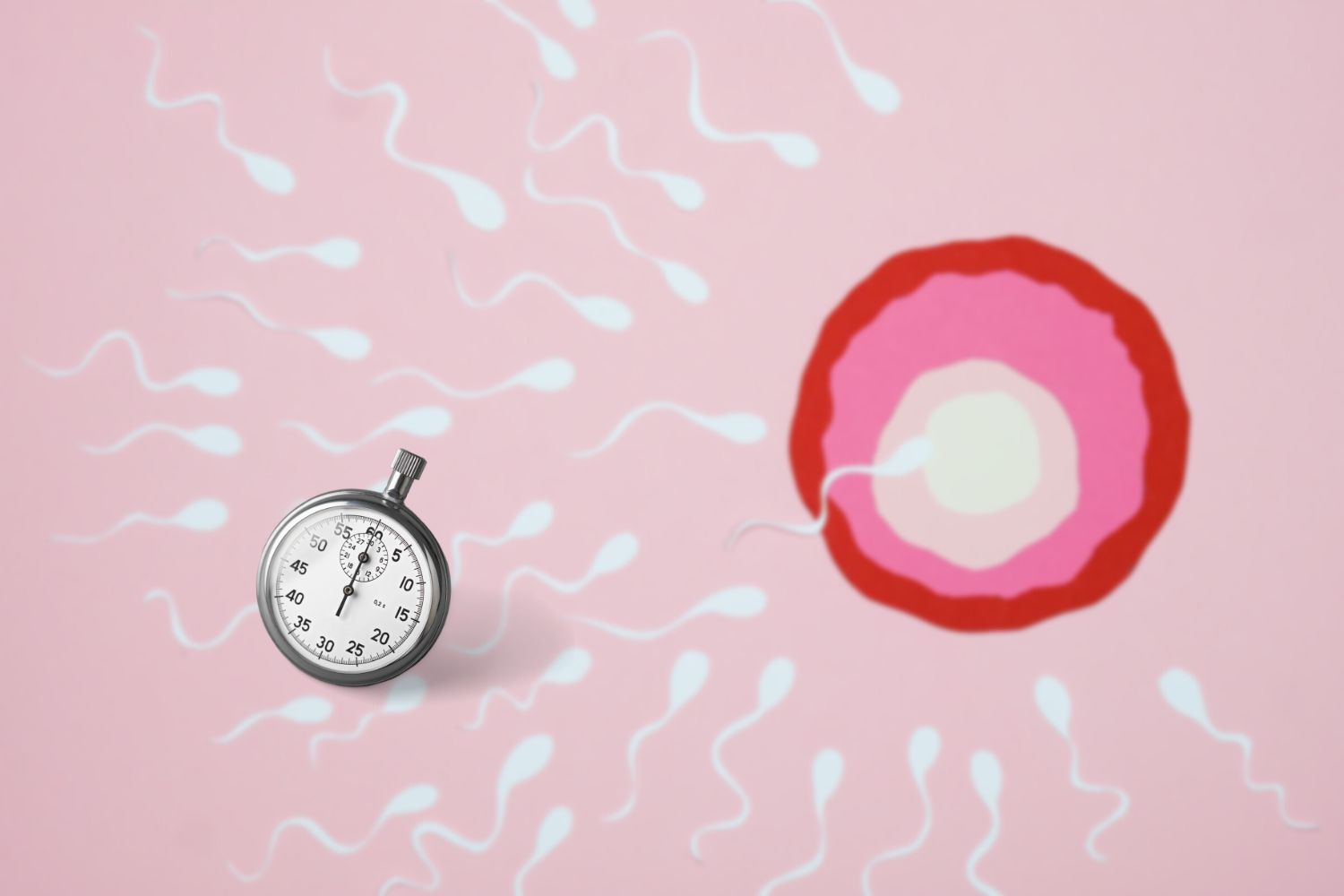Table of contents
Did you know that fertility concerns aren’t a woman-only issue? It is estimated that of the couples who have trouble conceiving, nearly 50% of the time, it is due to a male fertility issue. Male-factor infertility is thankfully being more widely discussed, and couples are becoming aware of male-based issues that can affect their ability to conceive.
Different factors can lead to male infertility, one of them being low sperm count. How many sperm your partner has and their quality typically become a concern when couples try to conceive. If you want to have a baby and are having difficulty, a low sperm count may be the reason. Only a doctor can diagnose low sperm count. Still, this article will review the signs, causes, and possible treatment options so you can have a better understanding of the condition.
Symptoms of low sperm count
Oligospermia is the medical term for having fewer sperm than is considered normal in the ejaculate. Most men have around 75 million sperm per millilitre of semen. A low sperm count diagnosis is applied to men with fewer than 15 million sperm per milliliter or 39 million sperm total per ejaculate. Low sperm count isn’t something most men notice. In fact, there are few to no signs of low sperm count. That is, until you begin trying to conceive. The predominant low sperm count symptom is infertility.
All other symptoms experienced in conjunction with poor sperm count are often related to a condition that includes oligospermia as a side effect. For example, suppose you’re experiencing poor libido or less body and facial hair. In that case, these may be symptoms of a hormonal deficiency, which can also lead to low sperm count. Other common symptoms felt alongside oligospermia include erectile dysfunction and pain or swelling in and around the testicles.
But have you ever thought about how long sperm live and what the causes of low sperm count are?

What Causes Low Sperm Count?
If you feel like you’re noticing low sperm count signs, you probably wonder what it could be attributed to. The possible causes of low sperm count are typically divided into three categories.
Medical Reasons
Certain health conditions can cause low sperm numbers. Injuries and surgeries involving the testicles are known causes, as are genetic conditions like Noonan syndrome. If you have a history of testicular symptoms, such as swelling, your sperm count may be affected.
Other medical-based causes include:
Cancer treatments such as chemotherapy and radiation can affect sperm-producing cells and hormones responsible for sperm production.
Varicocele is a condition in which the drainage veins of the testicles swell.
STIs or other infections can damage or block the veins and tubes of the reproductive system.
Some medications, such as those for cancer or antifungal drugs.
Reproductive system problems, such as retrograde ejaculation or erectile dysfunction.
Various health and genetic conditions like cystic fibrosis, tumors, or Klinefelter syndrome.
Environmental Reasons
The testicles hang outside the body to provide an adequate environment for sperm, which is slightly lower than the average body temperature. Too hot temperatures can adversely impact sperm count. Environmental factors like frequently spending time in hot tubs, regularly working outside in the heat while wearing tight underwear or pants, or routinely sitting with your computer on your lap can harm sperm.
Aside from overheating, sperm face environmental hazards from pesticides, herbicides, heavy metals, solvents, and other industrial chemicals. Other occupational hazards can include regular radiation exposure, such as from X-rays.
Lifestyle Causes
A variety of substances that can be ingested or inhaled can negatively impact sperm production. Heavy drug use, smoking, and moderate to heavy alcohol consumption have been shown to decrease sperm count. Also, anabolic steroid use from workout supplements or testosterone boosters can harm sperm.
Finally, mental health conditions that are severe and long-term may affect sperm count if they disrupt hormonal balance. Stress or depression, for example, may increase your risk of low sperm count.
Risk Factors
Certain risk factors can increase your chances of experiencing a low sperm count. Being overweight, including obesity, can predispose you to a low sperm count. In addition, surgery or traumatic events involving the testicles may result in low sperm count.
Ayurvedic Fertility Support for Him
Fertility support developed by experts. This supplement contains a blend of Ayurvedic herbs and vitamins, including Maca Root, Shatavari, and Ashwagandha.
Side Effects of Low Sperm Count
The main side effect of low sperm count is decreased fertility. Low sperm count likely won’t prevent you from conceiving, but it can make it more challenging. It may also mean that it takes you longer to conceive a baby with your partner. However, suppose your sperm count is zero, a condition known as azoospermia. In that case, you will not be able to get your partner pregnant. A count of zero isn’t common. When does your body stop producing sperm? Never. Production does start to decrease slightly after age thirty-five.
Other side effects of low sperm count are not related to the number of sperm but to the condition producing the low sperm count. For example, low libido results from stress and high cortisol levels.
When Should You See a Doctor?
How do you know if you have low sperm count? Only a doctor can tell you for sure. It can be helpful to see a medical professional if you have been trying to get your partner pregnant for a while with no success. Some recommend seeing a doctor after six months of unsuccessful trying, while others advise waiting a year. If you are having other hormonal or health-related symptoms, it is always advisable to see your doctor.
Your doctor will likely perform a physical exam and talk to you about your concerns. A semen analysis, in which your ejaculate is collected and then viewed under a microscope, can help your doctor determine sperm count, morphology (shape), and motility (movement). Blood tests, an ultrasound of the reproductive system, and a biopsy may also be required.
Can Low Sperm Count be Treated and Prevented?
Depending on the cause of low sperm count, treatment can range from surgery to lifestyle changes as well male fertility supplements.
Surgery may be required for conditions like a varicocele or if there is a blockage. Medications are often helpful in treating infections impairing sperm production or addressing inadequate hormone levels. Lifestyle changes, such as counseling for premature ejaculation, weight loss with diet and exercise, and avoiding frequent trips to the hot tub, may help boost sperm count.
If you have a dietary deficiency, certain vitamins and supplements may be able to help. But it is recommended that you talk to your doctor first.
For some causes of low sperm count, there is no guaranteed way to prevent the condition. However, for men who are healthy and without a known condition or issue, certain supplements may help boost their sperm numbers.
Herbs such as Mucuna, Maca, Shatavari, and Ashwagandha have been found to support sperm count. Additionally, compounds like CoQ10 have shown promising research results for aiding sperm count and quality.
Even if your sperm levels are fine, a supplement like Osh Wellness Fertility Support for Him can benefit your sperm parameters. Supporting motility, morphology, and count. It’s also beneficial for hormone levels, stress, and overall health. Because sperm is half of the equation when it comes to conceiving a healthy baby, taking a preconception supplement can’t hurt!
Related Products
Ayurvedic Fertility Support for Him
Fertility support developed by experts. This supplement contains a blend of Ayurvedic herbs and vitamins, including Maca Root, Shatavari, and Ashwagandha.








